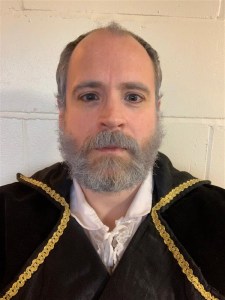As strange to us as if they had never lived
In December, I had the wonderful good fortune to play Ebenezer Scrooge in an adaptation of A Christmas Carol produced by new local theatre company Constant Lark. This was a joyous experience, and a wonderful character to explore. Although his name has entered the language as a synonym for miserliness, the true wonder of Scrooge is how he learns and grows over the course of the story. He is, in many ways, both protagonist and antagonist – we follow his growth, but experience all of the worst he has to offer and the harm he has done to those around him, and ultimately to himself.
This is the second production I have done with Constant Lark, having played Prospero and Gonzalo in their debut performance of Shakespeare’s The Tempest (my first Shakespeare). They have a mission to bring theatre to new audiences, inspire a new generation and bring both classic works and new writing into the light. All good stuff as far as I’m concerned.
In A Christmas Carol, I had the strange experience of spending most of the time either pretending that I couldn’t see or hear my fellow performers (when they were narrators) or having them pretend they couldn’t see or hear me (when they were characters the Spirits were showing me). An unusual acting challenge for us all, I think, and I was so impressed with how everyone else stepped in and out of narrators and an array of beautifully drawn Dickensian people.
There were many scenes which resonated with me, but one in particular which I wanted to write about. During the section about Christmas Present, I/Scrooge argued with the Spirit. The scene featured baker’s shops, where (as I understand it) poorer people would bring their dinners to be cooked, presumably unable to afford fuel or perhaps not having an oven in their dwelling. Scrooge accused the Sprit of wanting to deny the poor their chance of a hot dinner by closing these shops every seventh day – an unfortunate effect of Sunday trading regulations. As Scrooge surprisingly points out, this day is “often the only day on which they can be said to dine at all.” Surprising because this is one of the first inklings we have that Scrooge would spare a thought for the comfort or happiness of others. In the first scenes, before any supernatural occurrences have taken place, he seems to think that the poor deserve nothing from others.
Scrooge’s point is that this is being done in the name of the Ghost of Christmas Present’s family (for surely he must be related to the one Christmas is named for). And the Spirit’s reply is fascinating:
“There are some upon this earth of yours,” returned the spirit, “who lay claim to know us, and who do their deeds of passion, pride, ill-will, hatred, envy, bigotry, and selfishness in our name, who are as strange to us and all our kith and kin, as if they had never lived. Remember that, and charge their doings on themselves, not us.”
Charles Dickens, A Christmas Carol, Stave Three (1843)
This seems to me to have been intended by Dickens as a rebuke to some of his peers for caring more about religion than faith, more about the law than love. And the rebuke rings true today, 180 years later. We are so capable of following rules without thinking about the consequences on others, on doing what seems right on the outside but which is rotten and uncaring on the inside. The same anger that Jesus expresses for hypocrites in the gospels (“I never knew you”, among other, even harsher words) is what is coming through here, or perhaps an echo of one of the start of one of the most-read Bible passages at weddings:
If I speak in the tongues of men and of angels, but have not love, I am only a resounding gong or a clanging cymbal.
1 Corinthians 13 v 1, NIV translation
Whether Scrooge brought the question up because he cared or because he wanted to score points against a being that was dragging him around London in his dressing gown is certainly up for interpretation, but the point of the Spirit’s reply is not. Our actions speak louder than our words – we can claim to be loving, but if what we do does not demonstrate love, why bother?
People (including me – I am pretty sure I count in the category of people) can do many things in the name of God, or any deity, or British values, or common decency, or national pride, or professional standards or whatever it may be. But if those actions and their consequences hurt others, then that is on us and nobody else. We can dress up hatred by saying it is God’s will or what is right for the country or not a situation our code of conduct covers. But it is still hatred. We can justify cruelty in the name of the national interest, but it is still cruelty. We can stay silent or look the other way or implicitly condone abuse. And no matter how we try to justify it by appeal to some other authority, it comes down to us – these are our words and our actions or inactions. Our own.
Charge my doings on myself. Not on the British government, or whatever our system of values is supposed to be. Not on the church or on God. Not on my profession or my employer. On me. When I get it wrong (which I do), it’s on me. The Spirit’s rebuke made me think about this and have made me more determined to check my motives and my actions. And I felt I needed to write it down as well.







